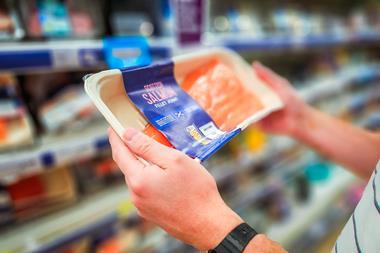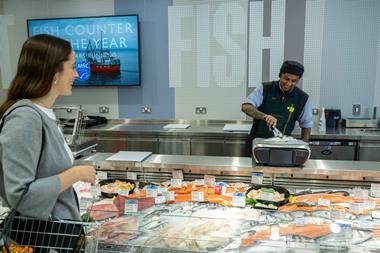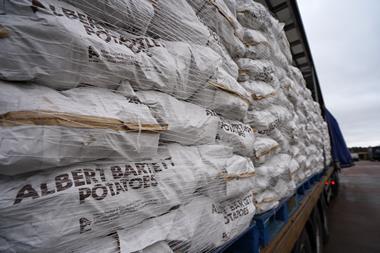Any discussion about canned fruit invariably involves the threat of Chinese low-cost production, as evidenced during the mandarin orange season when Spanish canners put pressure on Brussels to safeguard their industry, claiming Chinese production was subsidised.
Now attention is focused on this season's forthcoming peach pack, as China indicates its intention to grow its share of the EU market.
Greece, the largest producer of peaches, is set to request more safeguards by way of minimum import prices.
As the switch back from farmed to wild canned salmon gains momentum, a Canadian Fisheries Commission report will not be welcome to West Coast processors. If the predictions are correct, the Fraser River will be depleted of stocks in three years and could take 15 to regenerate if conservation steps are implemented over the next few years.
Most of the cannned salmon sold in the UK comes from Alaska, and Bristol Bay in particular. As such, the absence of Fraser fish will not be a problem, other than the overall effect on West Coast prices.
Sardine prices up 15%
Sardine prices are increasing by 15% to cover higher tin plate costs and wages, a common theme in the canning industry.
Curtailed fishing in Moroccan waters, following a ban aimed at French vessels, seems to have resulted in fewer but larger fish, an unexpected result but a problem for the canning industry. “Reasonably good” was how a packer summed up current catches. But if the larger fish prevail, canners may have problems meeting UK specifications.
South Africa has had an exceptionally poor harvest of sultanas and raisins. This will provide a boost to prices for the rest of the season, some believe. Turkish sultana prices have continued their gradual rise as stocks diminish.
Canned fruit safeguards
Wild salmon in crisis
Now attention is focused on this season's forthcoming peach pack, as China indicates its intention to grow its share of the EU market.
Greece, the largest producer of peaches, is set to request more safeguards by way of minimum import prices.
As the switch back from farmed to wild canned salmon gains momentum, a Canadian Fisheries Commission report will not be welcome to West Coast processors. If the predictions are correct, the Fraser River will be depleted of stocks in three years and could take 15 to regenerate if conservation steps are implemented over the next few years.
Most of the cannned salmon sold in the UK comes from Alaska, and Bristol Bay in particular. As such, the absence of Fraser fish will not be a problem, other than the overall effect on West Coast prices.
Sardine prices up 15%
Sardine prices are increasing by 15% to cover higher tin plate costs and wages, a common theme in the canning industry.
Curtailed fishing in Moroccan waters, following a ban aimed at French vessels, seems to have resulted in fewer but larger fish, an unexpected result but a problem for the canning industry. “Reasonably good” was how a packer summed up current catches. But if the larger fish prevail, canners may have problems meeting UK specifications.
South Africa has had an exceptionally poor harvest of sultanas and raisins. This will provide a boost to prices for the rest of the season, some believe. Turkish sultana prices have continued their gradual rise as stocks diminish.
Canned fruit safeguards
Wild salmon in crisis


















No comments yet